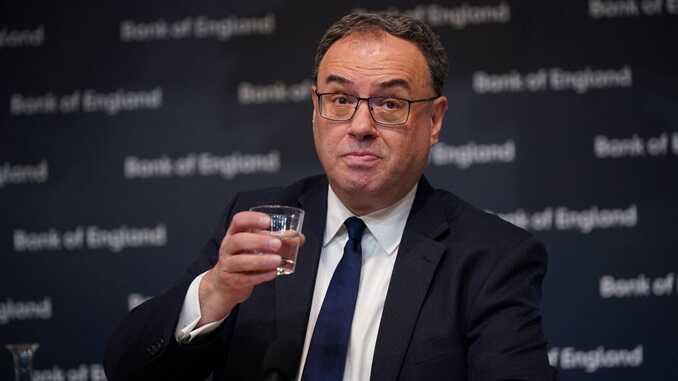
The Bank of England should be on the guard against the potential inflationary impact of Labour’s inflation-busting public sector pay deals, according to economists.
Since entering office at the beginning of July, Labour has signed off on public sector pay rises worth 5.5 per cent for many public sector workers, more than double the current rate of inflation.
Some workers have received particularly hefty pay rises. Train drivers have received a 14 per cent pay rise while junior doctors could see their pay rise by 22 per cent over two years.
Speaking after the Bank of England’s most recent interest rate decision, Governor Andrew Bailey said these pay deals would, in themselves, add less than 0.1 percentage points to headline inflation.
“The proverbial back of the envelope suggests an increment in the inflation space which is very small,” he said. “I mean, you’re in quite small second decimal place numbers at that point.”
In a note out earlier this week, Capital Economics agreed that public sector pay rises would not “move the dial” on inflation. However, the real risk was the extent to which the pay deals set a “benchmark” for the whole private sector.
“The big risk is that by setting a benchmark for private sector firms, these pay deals prevent wage growth and services inflation from falling much further,” Ashley Webb, UK economist at the consultancy said.
New research from Costas Milas, a professor of finance at the University of Liverpool, suggests that these fears are legitimate.
Milas argued that a shock to public sector pay ends up lifting private sector wages for around five quarters, triggering an acceleration in inflation a year later.
“Higher growth in real public earnings affects inflation indirectly through its impact on real private earnings,” he wrote in a blog post for the London School of Economics.
Milas argued that Labour’s pay deals could therefore trigger inflationary pressures from around the second half of next year. He suggested that the acceleration in inflation would be around 0.4 percentage points and would last for around a year.
“It might be prudent to resist the pace of monetary easing financial markets currently expect,” he said.
Milas also warned that public sector pay tends to rise three quarters after pay disputes have been settled, which can contribute even more to inflationary pressures. This is because
“It looks like a new wave of UK strikes might be on the way as pay deals spur unions to bargain harder. Such strikes will lift wages across the economy and add to (significant) inflationary pressures,” he wrote.